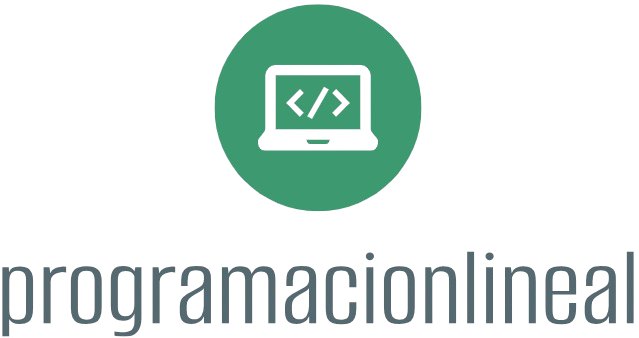Becoming a DevOps engineer involves a blend of skills, knowledge, and practices that bridge the gap between software development (Dev) and IT operations (Ops). This guide outlines steps, tools, and concepts to help you on your journey to becoming a successful DevOps engineer.
Step 1: Understand the DevOps Culture and Principles
- Learn the Basics of DevOps: Understand what DevOps is and its core values: collaboration, automation, continuous integration, continuous delivery (CI/CD), and feedback.
- Culture of Collaboration: Recognize the importance of communication and collaboration between development and operations teams. This cultural shift is crucial for implementing DevOps effectively.
Step 2: Build a Strong Foundation in Software Development
- Programming Languages: Know at least one programming language well; popular choices include Python, Java, JavaScript, and Go. Understand coding best practices and version control concepts.
- Scripting Skills: Familiarize yourself with shell scripting (Bash) and scripting languages (Python, Ruby) to automate tasks.
Step 3: Gain Experience with System Administration
- Operating Systems: Get comfortable with both Windows and Linux systems. Linux is particularly important for server management and deployment.
- Networking Basics: Understand networking concepts, protocols, DNS, and HTTP/HTTPS, as these are vital for configuring servers and troubleshooting issues.
Step 4: Learn Version Control Systems
- Git: Gain proficiency in Git for version control. Understand commands for branching, merging, and collaboration in repositories (e.g., GitHub, GitLab, Bitbucket).
- Workflow Strategies: Familiarize yourself with Git workflows such as Git Flow or trunk-based development.
Step 5: Understand Continuous Integration and Continuous Delivery (CI/CD)
- CI/CD Concepts: Learn the principles of CI/CD, which help automate software development processes, enabling faster and more reliable code releases.
- CI/CD Tools: Get hands-on experience with popular CI/CD tools like Jenkins, GitLab CI, CircleCI, Travis CI, or GitHub Actions. Understand how to set up pipelines, triggers, and deployment strategies.
Step 6: Explore Configuration Management and Infrastructure as Code (IaC)
- Configuration Management Tools: Familiarize yourself with tools like Ansible, Puppet, or Chef for automating server configuration and management.
- Infrastructure as Code: Learn about tools like Terraform or AWS CloudFormation to provision and manage infrastructure through code, enhancing consistency and reproducibility.
Step 7: Get Acquainted with Containerization and Orchestration
- Docker: Learn how to create, manage, and deploy Docker containers. Understand Docker images, containers, networking, and volumes.
- Kubernetes: Get basics of Kubernetes, a container orchestration platform. Understand its architecture, concepts like pods, services, deployments, and how to scale applications.
Step 8: Explore Cloud Platforms
- Choose a Cloud Provider: Gain hands-on experience with major cloud service providers like Amazon Web Services (AWS), Microsoft Azure, or Google Cloud Platform (GCP).
- Understand Cloud Services: Familiarize yourself with cloud services relevant to DevOps, such as compute (EC2, App Engine), storage (S3, Blob Storage), and databases (RDS, Cloud SQL).
Step 9: Monitor and Log
- Monitoring Tools: Learn to use monitoring tools like Prometheus, Grafana, or Nagios to observe application performance and resource usage.
- Logging Solutions: Understand logging tools such as Elasticsearch, Logstash, and Kibana (ELK Stack), Graylog, or Splunk for aggregating and analyzing logs.
Step 10: Master Soft Skills
- Collaboration: Improve your interpersonal skills to effectively collaborate with cross-functional teams.
- Problem-Solving: Cultivate a mindset for troubleshooting and resolving issues efficiently.
Step 11: Compile a Project Portfolio
- Hands-on Projects: Build and deploy personal projects that demonstrate your skills. This could involve creating a simple application using Docker and Kubernetes or integrating CI/CD into a project.
- Contribute to Open Source: Consider contributing to open-source projects, which provides practical experience and enhances your networking opportunities.
Step 12: Continuously Learn and Network
- Stay Updated: The landscape of DevOps is always evolving. Follow relevant blogs, subscribe to newsletters, and attend webinars to stay informed about trends and practices.
- Join Communities: Engage with DevOps communities on platforms like LinkedIn, Reddit, or specialized forums to share experiences, ask questions, and network with professionals.
Step 13: Consider Certifications
- DevOps Certifications: Although not always necessary, certifications can validate your skills. Consider certifications like:
– AWS Certified DevOps Engineer
– Azure DevOps Solutions Expert
– Docker Certified Associate
– Certified Kubernetes Administrator (CKA)
– HashiCorp Certified: Terraform Associate
Conclusion
Becoming a successful DevOps engineer requires a combination of technical skills, cultural understanding, and a commitment to continuous improvement. By following this guide and actively engaging with the community, you can build the expertise necessary to thrive in the evolving DevOps landscape. Embrace challenges, seek out learning opportunities, and cultivate a mindset of collaboration and automation. Good luck on your path to becoming a DevOps engineer!











